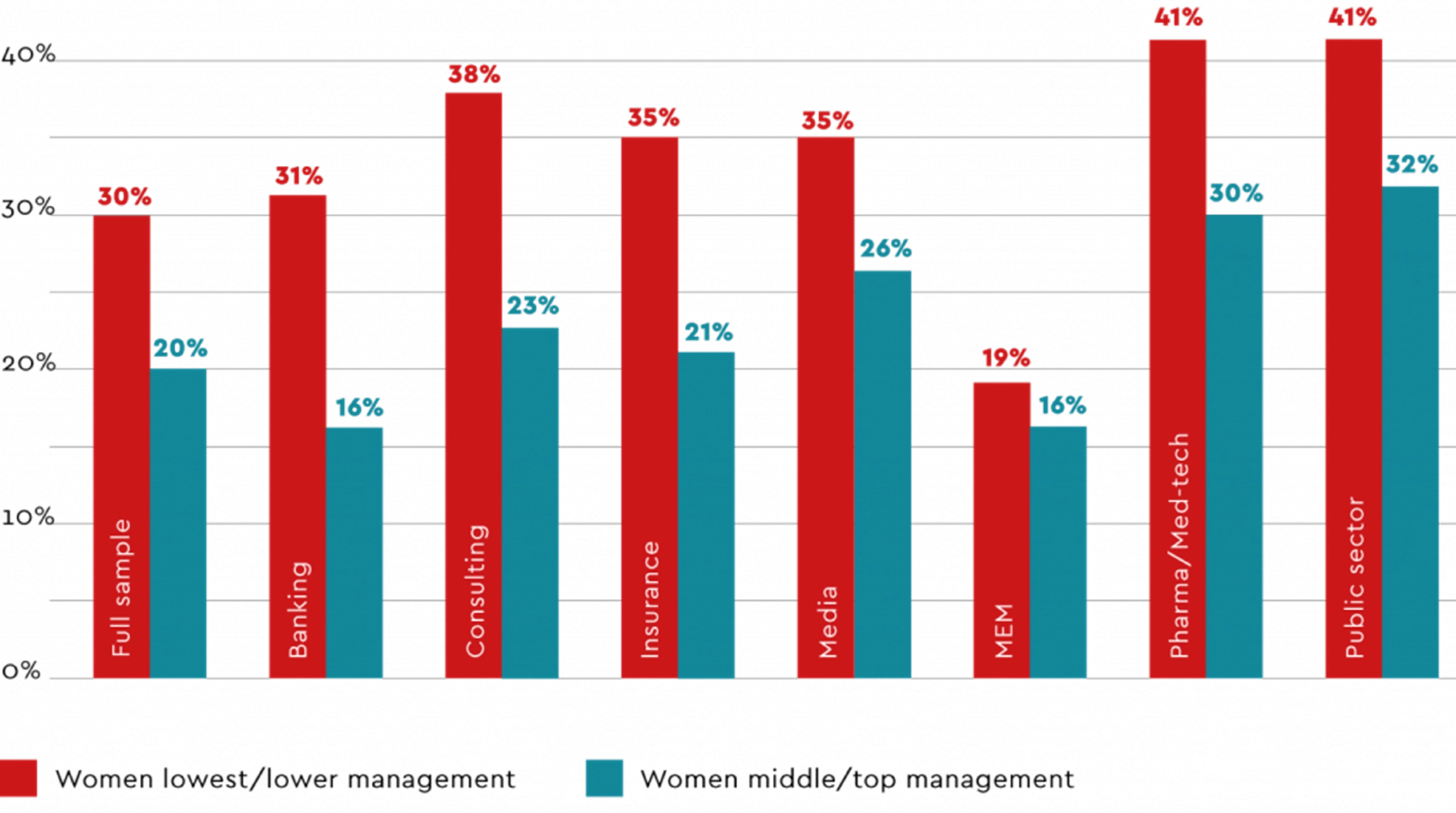Even though Switzerland ranks 13 out of 146 countries on the Global Gender Gap Index there is room for improvement, especially when it comes to the labour market. Closing the gender gap could benefit companies as well as the entire society.
Swiss companies are not diversity leaders
While Switzerland is one of the richest and safest countries in the world, Swiss companies are not leading the way when it comes to gender diversity. Swiss men and women under the age of 30 enter the job market with similar educational backgrounds. However, research shows that Switzerland seems to be stuck in a model where the man is the primary income provider for his family and his wife/partner supports him with family care.
“As a soon-to-be mother, I was surprised when my co-workers asked if I planned to return to work after the birth of my first child. When the question arose again during my second pregnancy, I had grown accustomed to it. The social pressure was much more difficult for me to deal with than achieving a good work-life balance. And I realised that the social pressure placed on breadwinner men is also unhealthy.”
With the skills shortage a reality in many professions in Switzerland, the country would benefit from including more women in the workforce at all levels.
But not every nation is in the same fortunate position to have an educated population. For instance, in one third of all countries, especially in Africa, the Middle East and South Asia, gender disparities that disadvantage girls persist in primary education.
The gender pay gap increases with age
Swiss women and men enter the job market with similar educational backgrounds. However, even between the ages of 20 and 29, women earned 6.2% less than their male counterparts in the private sector in 2020. The difference is not huge at the beginning of their careers but increases with age and becomes significant, especially when couples have children. This wage loss is often referred to as “child penalty”. The penalty persists up to 20 years after the birth of the first child. Thus, in 2020, the gap between 30 and 39 years of age was 7.5%, between 40 and 49 years of age 14.9%, and finally between 50 and 65 years of age 18.3%.
The current salary gap between men and women is 13.8% in Switzerland. This means that if a man and a woman both start working on Jan 1st, 2023, the man starts being paid as of Jan 1 and the woman works for free until Feb 18th, 2023. This gap is illegal and in breach of the Swiss Gender Equality Act defined in the Federal Constitution. According to a study conducted by the Swiss government, 44.3% of this gap in 2018 remains unexplained by the level of education, job position or experience. by the level of education, job position or experience.
Mentalities take time to change, but by now, there are more women than men completing their education with a tertiary degree. Let’s hope this will contribute to close the gap! In addition, there are many good initiatives from companies who are aware of the benefits of gender diversity.
Gender Diversity improves the decision-making process
The ability of women to influence a company’s culture is very limited in most cases. Research shows that members of a minority group may influence the organizational culture at a representation of about 33%. While women occupy 44% of the non-management positions in Swiss companies, they represent only 17% of the top management. So, the proportion of female top managers is not sufficient to drive the change.
Percentage of women by industry and management level

Source: Gender Intelligence Report 2022
Data from the Gender Intelligence Report 2022 shows that the more “Swiss” companies are (in terms of Swiss vs. non Swiss employees), the more women are underrepresented in management. This shows that the Swiss culture remains an obstacle for women to access management positions.
At the same time, research shows that gender diverse teams make better business decisions, up to 73% of the time. Gender diversity can also contribute to make companies more productive. So, companies would benefit from more diversity, particularly in management.
The good news is that some measures worked in other countries and the following actions can help companies achieve a better gender balance at all levels:
- Anchor diversity and inclusion, inclusion being the means and diversity the end
- Inclusion targets for managers
- Use inclusion skills as criteria in key human resources processes such as promotions and to a lesser extent recruitment
- Offer parental leave (i.e., shared leave entitlement) and offer it longer than the legal minimum required, for example making it mandatory for fathers to take their leave.
Invest to close the gender gap
Reducing the gender gap would benefit the entire society and add between 12 to 28 trillion US Dollars to the global GDP, according to a McKinsey & Company’s Global Institute report. Companies in various industries realised that improving gender diversity within their workforce and management teams could be an asset and contribute to their success.
We at radicant want to encourage this trend and invest in companies providing solutions to empower girls and women.
Learn more about our radiThemes:
See video
